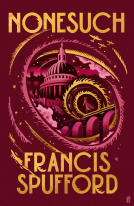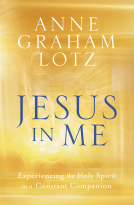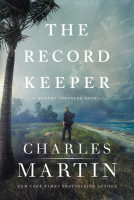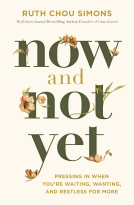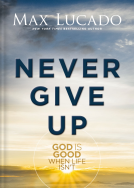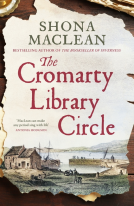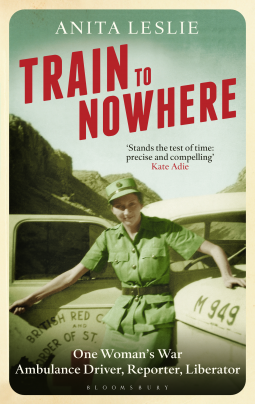
Train to Nowhere
One Woman's War, Ambulance Driver, Reporter, Liberator
by Anita Leslie
This title was previously available on NetGalley and is now archived.
Send NetGalley books directly to your Kindle or Kindle app
1
To read on a Kindle or Kindle app, please add kindle@netgalley.com as an approved email address to receive files in your Amazon account. Click here for step-by-step instructions.
2
Also find your Kindle email address within your Amazon account, and enter it here.
Pub Date Aug 24 2017 | Archive Date Aug 24 2017
Bloomsbury Publishing Plc (World) | Bloomsbury Caravel
Description
Train to Nowhere is a war memoir seen through the sardonic eyes of Anita Leslie, a funny and vivacious young woman who reports on her experiences with a dry humour, finding the absurd alongside the tragic.
Daughter of a Baronet and first cousin once removed of Winston Churchill, she joined the Mechanized Transport Corps as a fully trained mechanic and ambulance driver during WWII, serving in Libya, Syria, Palestine, Italy, France and Germany. Ahead of her time, Anita bemoans 'first-rate women subordinate to second-rate men,' and, as the English Army forbade women from serving at the front, joined the Free French Forces in order to do what she felt was her duty.
Writing letters in Hitler's recently vacated office and marching in the Victory parade contrast with observations of seeing friends murdered and a mother avenging her son by coldly shooting a prisoner of war. Unflinching and unsentimental, Train to Nowhere is a memoir of Anita's war, one that, long after it was written, remains poignant and relevant.
With a new introduction by Penny Perrick.
Advance Praise
'If Evelyn Waugh's Mrs Algernon Stitch had been possessed of a heart, a sense of humour, and a glorious prose style, it could be said that she was a dead ringer for Anita Leslie. Train to Nowhere is a glorious book, brought back to vivid life.'
John Banville, Booker Prize winning author of The Sea
'A vivid memoir, beautifully crafted, by a remarkable woman at a unique period in modern history. A young cousin of Winston Churchill, she operated as an ambulance driver from 1940-1945 on the front lines in Africa, Arabia and Europe enduring with humour all the hardships and privations entailed in war by service personnel without rank. Her skills of observation are penetrating and make this book a marvellously accessible account of WWII. Unputdownable.'
Mary S. Lovell, Internationally bestselling author of The Mitford Girls
'Train To Nowhere is the most gripping piece of war reportage I have ever read: particularly affecting is her account of the Battle of Colmar, where her descriptions are almost too unbearable to take in. What a writer! Her observations, mixed with dry humour and compassion, place her at the heart of the conflict and somehow apart from it, as a good historian should be. Remarkable.'
Joanna Lumley, Actress and Author
Anjelica Huston, Actress and Author
'The emotional truths of front-line war revealed – a charming writer, bold, female and brave'
Fay Weldon, Author of Death of a She Devil
'A vivid reminder that a woman can experience and write about a war, and seventy years on, her words stand the test of time: precise and compelling'
Kate Adie, BBC Broadcaster and Author
'Anita
Leslie’s dispassionate account of her own extraordinary role in World War II is
a rediscovered gem, and her harrowing description of the fighting in Alsace
particularly stands out as one of the finest pieces of war reporting to come
out of that or any other conflict….This is a remarkable book.'
Ray Moseley, Pulitzer Prize nominated war correspondent and author of Reporting
War How Foreign Correspondents Risked Capture, Torture and Death to Cover World
War II
'A sharply observed account of one woman's unique war. Surreal, funny, dark, and profoundly moving. Gold dust'
Rick Stroud, Author of Lonely Courage
'Nobody else has written about the war like this, a mixture of savagery and fun; perhaps Evelyn Waugh comes closest'
Penny Perrick, Author of Telling Tales: The Fabulous Lives of Anita Leslie
'Train to Nowhere speaks of another mood, a different time and a grittier generation...This, surely, is the second world war we want to rediscover in print'
Robert McCrum, Observer
'A terse, keen reticence and the summing up of deadly situations in a line or two'
The Times, 1948
'Calm, youthful candour ... forthright acceptance of the whole duty of war service'
Observer, 1948
Available Editions
| EDITION | Hardcover |
| ISBN | 9781448216833 |
| PRICE | £16.99 (GBP) |
Links
Average rating from 30 members
Featured Reviews
 Reviewer 153322
Reviewer 153322
Leslie, a cousin of Winston Churchill, had the dysfunctional aristocratic upbringing of a Wodehouse novel--sketchy schooling, left with grandparents on an Irish estate with its own local IRA contingent, expected to be blithe, flappery and flirtatious (and never, ever get sunburned). Instead, while her two brothers joined the British military, Leslie signed up for the womens' Motorized Transport Corps to drive ambulances, and this memoir follows her from the half-assed training camp under the Battle of Britain (girl scouts had to show them all how to pitch tents while the planes roared overhead) through Egypt, working on the Eastern Times newspaper out of Beirut, joining the Free French army to get into liberating Europe and writing accounts of Russians in Berlin while sitting in Hitler's recently vacated office. Leslie grew into the better traits of her time and class--sangfroid, dark humor and a sense of searing fair play which make her accounts of retreating Nazis murdering ambulance drivers and witnessing the effects of the CBO particularly powerful. This is a re-issue of the 1948 work, which ran counter to the way the public wanted to see women in the wake of WWII.
This is an amazing book. It was written during WWII by a fearless woman who wouldn't normally have been allowed in war zones, and she goes through different countries and war zones as an ambulance driver with an adventurous attitude and a keen eye.
As she goes from North Africa to the European theater, the battles get closer and the encounters more dangerous. She's with the Free French Army as they liberate Paris, watches the Berlin liberation parade from the grandstand, visits Hitler's office, and is horrified when she sees Nordhausen concentration camp after it has been liberated. The description of the camp is chilling.
Her stories of the battle of Colmar in France are harrowing. She goes back to Ireland and England after the battle, and ends up having lunch with her cousin Winston Churchill, who is busy making "phone calls to Eden and 'Ike' and Roosevelt". She tries to tell him about France, "the hungry broken country we had left behind us".
Anita Leslie is funny and irreverent. She makes her war experience sound like a "lark" at times, which contrasts with the stark reality of the thousands of deaths she witnesses. It can make for a jarring read at times, especially when she goes from discussing death to fashion in France in the same paragraph. She meets many mothers of soldiers, both Allies and enemies, and sympathizes with them all.
I really enjoyed this book, especially the ending, and readers of historical fiction will appreciate it.
Thanks to Bloomsbury Caravel and NetGalley for the ARC of the book in exchange for an honest opinion.
 Lesley N, Reviewer
Lesley N, Reviewer
This memoir of Anita Leslie was very interesting but the writing style was rather dry, so it was not an easy read. The conditions under which the medical staff worked in WW2 seemed more akin to WW1 than Korea, which was only 10 years later. Good for Anita putting up with everything and helping others when she could have got a cushy posting with all her connections. A must for history buffs as it uncovers aspects of the war which are not often mentioned.
 Katrina O, Educator
Katrina O, Educator
Excellent book, especially if you want to know what it was REALLY like during the push into France and then Germany after D-day. Anita Leslie, cousin of Winston Churchill, originally joined up with MTC as a trained mechanic and ambulance driver. Initially posted to Egypt, then Syria and Lebanon, she writes about the people she encounters there , which I found particularly interesting when considering the current conflict in Syria. Anita is keen to be where the action is, and when the war starts to progress into Europe she applies for a transfer to Italy. In Naples, she looks after casualties of Anzio and Cassino. When the MTC is incorporated into the ATS, meaning that British women will be kept well away from the front, she volunteers as an ambulance driver to the French forces following closely behind tanks as they make their way through Europe. This is a first hand account of her experiences during this very tumultuous period in history, and is an enthralling read. The day to day difficulties faced by troops, finding food, somewhere to sleep, indiscriminate death and injury, concentration camps, Berlin and the German people are all described in a very accessible and interesting way. This is not a book about the glory of war, but more the facts of daily life; and in its telling you gain a remarkably clear picture of how it was. I thoroughly enjoyed reading this and learnt some surprising facts that I was previously unaware of. An excellent read for anyone interested in WW2.
 Leyla J, Reviewer
Leyla J, Reviewer
This book was a real surprise, at the beginning I found it a little rambling, but as I got into it, I understood this book could not be written any other way. It would just have been heartbreaking, and just s0 difficult to read as it would have been to write. This way it told the story, many stories in the form of reminiscing and telling the tremendous jobs done n the war behind the scenes with factual play within. I loved the book, even to the point in shedding a few tears in one particular part.
I recommend everyone to read this, it is extremely well written and tells a "story" in a very easy way, with big impact.
 Bonnye Reed F, Reviewer
Bonnye Reed F, Reviewer
I received a free electronic copy of this memoir from Netgalley, Bloomsbury Caravel Publishers, and the heirs of Anita Leslie in exchange for an honest review. Thank you all for sharing your hard work with me. This personal history was originally published in 1948.
This is a very different account of the major battles of WWII. Anita Leslie takes us with her as she travels through all of the major the battles of World War II on four fronts from autumn of 1940 through the end of 1945. Because the British did not allow their ladies to serve at the front, Anita bounced around between publishing broadsheets for the English speaking allied soldiers and driving ambulances for the French army. Her memories and experiences of various battles and the occupation of Germany show us a much more personal experience than we were able to extract from history books. I am grateful for this view point. It gives me a much better understanding of the costs of war and also of the camaraderie and lifelong friendships that are a result of those shared experiences.
Thank you, Bloomsbury Caravel, for reprinting this gem.
 Susan R, Reviewer
Susan R, Reviewer
First published in 1948, this is a memoir of a woman’s role in World War II. Anita Leslie came from a privileged, and well connected, background. Winston Churchill’s mother was her ‘Great Aunt Jennie,’ and the Prime Minister invited her for lunch, both at Chequers and in France, during this book. Having grown up wearing his cast off baby clothes, she thought him a ‘mixture of a cherub and a bulldog,’ and mused on how little Hitler and Mussolini understood, ‘the mettle of England,’ as she enjoyed his company.
The book begins in August 1940, when Anita came across a newspaper advertisement for women drivers to go to Africa. She immediately volunteered; taking part in desultory training, which included putting up tents while bombers roared overhead and attending a lecture on ‘Virtue in Tropical Lands,’ before being blessed by the Bishop of St Alban’s and finally, after some more training (which took place in London, during the blitz) boarding a ship for South Africa. Warned not to get unbecomingly sunburnt, Anita Leslie is a young woman full of life. She takes her work seriously, but – all the way through this book – there is room for music, parties and dancing, throughout the war.
We follow her through Middle East with the Mechanised Transport Corps. She found that women were not welcomed in war zones, but the women’s ambulances were needed and the men happy to receive their aid. She works in Cairo, Damascus and Beirut, before heading for Europe. As she reaches Italy, the war feels much closer. Through France and Germany, Anita Leslie seems involved in so many major events. She is there during the Liberation of Paris, she sits in Hitler’s abandoned office and writes movingly of visiting an extermination camp. At no point is the horror of war forgotten and the author of this memoir certainly saw terrible things, but she writes with both humour and humanity.
This was a great success when it was first published and sadly went out of print. I feel really honoured to have read this memoir. It is touching, deeply moving and yet also uplifting. If you would like to read a memoir of the war from a different perspective – that of a woman who was alongside the troops, rather than on the Home Front (although I do enjoy such memoirs too), then this really does offer a unique point of view and an author with a wonderful ‘voice.’ I received a copy of this book from the publisher, via NetGalley, for review and recommend it highly.
 Neil C, Reviewer
Neil C, Reviewer
I received a free copy via Netgalley in exchange for a honest review.
A brilliant read showing the bravery and friendships of women during WWII on the front line.
It also shows the horrific side of war.
 Holly S, Reviewer
Holly S, Reviewer
Always having been interested in history, Train to Nowhere caught my eye. It is not only rich in details, it truly captures the emotions and appreciation by the characters for the situations they were in. Read it in one sitting which is a feat in itself with a small farm, 2 kids, a husband and a part time job! Loved it.
 Lisa S, Reviewer
Lisa S, Reviewer
According to the Introduction to this book, this story is one of 'dancing among the skulls'. We certainly don't know that we're alive compared with the brave women who volunteered for roles in the World Wars, such as Anita Leslie who worked as an ambulance driver in France. She certainly had a tough time, for example, she found herself on 'a road strewn for half a mile with dead bodies and blown-up carts' when driving a wounded little girl to the hospital. She watched soldiers die in a 'sea of red snow' and heard dreadful stories about German atrocities, such as thier shooting the inhabitants of every house that had hung our French flags when they retook Metz'. Nothing could have prepared her for the horror of the concentration camps, however.
It is not all grim reading. Leslie manages to invariably keep her spirits up under the most trying circumstances, and she includes humorous anecdotes, including the story of Miranda who would escape from the camp for a night out by digging in the sand under the barbed wire fence in a silver evening dress. She also writes about visiting the great Winston Churchill, her cousin, who sent the French 'his love'.
Anita Leslie has a rather breathless, fast-paced style which is very engaging and suits the story. She seems to have been extremely likeable as well as wonderfully courageous. She was awarded the Croix de Guerre by General de Gaulle.
I received this free ebook from Net Galley in return for an honest review.
 Daphne S, Reviewer
Daphne S, Reviewer
What a marvellous war Anita Leslie had!! Daughter of a Baronet and related to Winston Churchill,she had a privileged life and sought excitement in her life despite there being a war raging throughout the world.
Down to earth and scatty in equal parts,this book is a thoughtful and playful account of a well bred female ,who trained as an ambulance mechanic and driver and ended up being posted to Cairo,Syria and the Lebanon and eventually ended up in the European theatre of War. These young women were practically minded and just got on with life, finding time for parties and adventure that involved tales of daring and a can do attitude.
I found this book to be full of surprising facts about the role of women on the front line,who knew the French to be more liberal in their attitudes about women than the British? Anita saw the war as an adventure,yet had spells of levity when complaining about missing her maids and her attitudes about people of different races do make for uncomfortable reading with our modern eyes.
These woman were capable and determined to do as good a job as the men in the war effort. I found this an enjoyable read and would be invaluable to History teachers as they seek to tip the scales a little more fairly towards the gentler sex. I belong to my local U3A and will be recommending this book for future group studies. I have left a copy of this review on Goodreads today.
 Michelle K, Reviewer
Michelle K, Reviewer
Train to Nowhere
One Woman's War, Ambulance Driver, Reporter, Liberator
by Anita Leslie
Bloomsbury Publishing Plc (World)
Bloomsbury Caravel
Biographies & Memoirs , Travel
Pub Date 24 Aug 2017
I am reviewing a copy of Train to Nowhere through Bloomsbury Caravel and Netgalley:
Anita Leslie wasn't a likely person to find on the battlefield during World War Two. In 1940 England Anita reads an advertisement searching for Women drivers ready to go to Africa.
From November 1940 to February 1941 they lived in the Barracks in Robert Heights Camp Near Pretoria, in February orders came for them to proceed to Creet or Egypt. In a may heatwave they dealt with temperatures that soared to 119 degrees.
She went from Egypt to Transjordan and in the Autumn of 1942 she had to leave Transjordan and head for Beirut where she would resume working with the Eastern Times!
In May of 1944 Anita is sent to Italy where she worked as an ambulance driver transporting the injured.
In this book we learn just what Anita Leslie went through, and her efforts to help in World War 2.
I give it five out of five stars.
Happy Reading!
Readers who liked this book also liked:
Allison Holker
Biographies & Memoirs, Health, Mind & Body, Parenting, Families, Relationships

